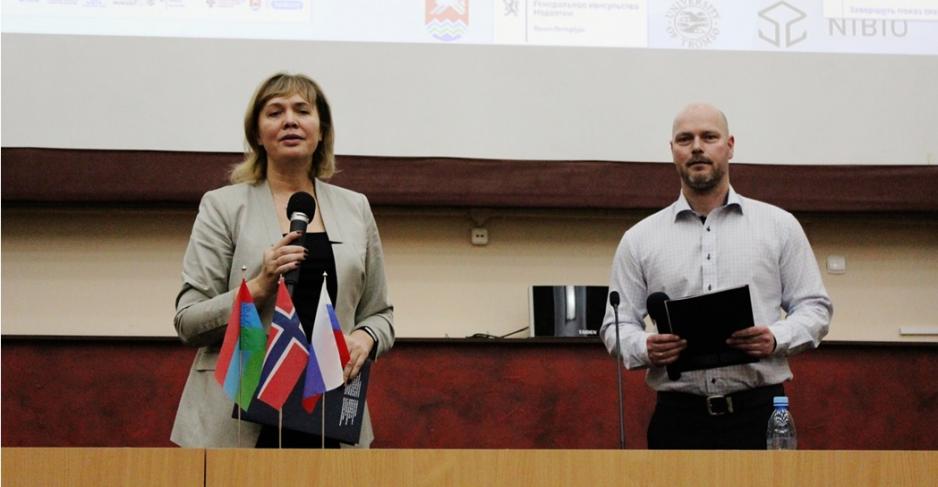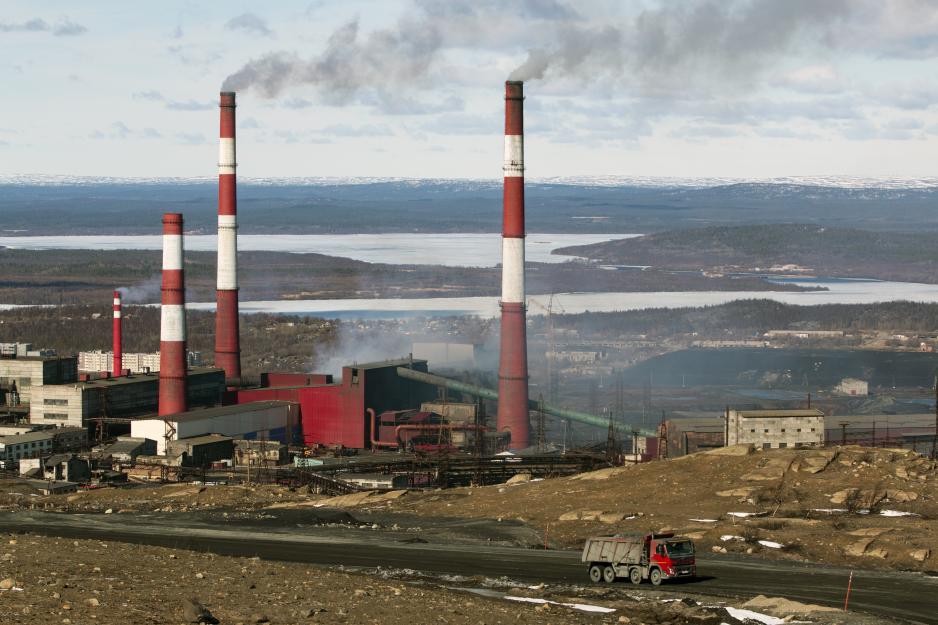Strengthening Northern Research Cooperation Between Norway and Russia

KarRC RAS President Olga Bakhmet and Head of Division and Research Chief of Nibio Svanhovd Snorre Hagen at the signing of the new agreement in Petrozavodsk. Photo: KarRC RAS.
The Norwegian Institute of Bioeconomy Research (Nibio) and the Russian research institute KarRC RAS extends their research cooperation in the Barents region. The two institutes are to conduct research on ecosystems in the border areas and trace environmental changes at the Nikel plant, which is scheduled to shut down later this year.
Nibio and the Karelian Research Centre of the Russian Academy of Sciences (KarRC RAS) have cooperated on research for a long period of time, and they have had joint activities in Norway as well as in Russian border areas. Early March, the two parties signed an agreement for extensive research cooperation.
“At Svanhovd, we have cooperated with the Karelian research institute on many previous occasions, in particular about brown bears”, says Snorre Hagen, Head of Division and Research Chief of Nibio Svanhovd .
Svanhovd is located in the Pasvik Valley in northeastern Norway, right by the Pasvik River, which forms the border towards Russia in this part of the country.
The main focus for us will be here, in the border areas, where there is a lot of interesting and valuable nature.
“At Svanhovd, there is currently increased emphasis on research cooperation with Russia and in light of that, we have reestablished contact with the Karelian Research Center, with the desire to establish extended research cooperation. We want to cooperate about more than just bears”, Hagen says.
He says the joint cross-border research initiative is expanding as Nibio Svanhovd has received additional funds from the Ministry of Climate and Environment and the Ministry of Foreign Affairs in order to strengthen cooperation with Russia:
“That is what currently allows us to enter into cooperation with several Russian actors, so that we can join forces to achieve the best research possible. The main focus for us will be here, in the border areas, where there is a lot of interesting and valuable nature and many shared, cross-border interests. We simply have to learn more from one another.”
Expands cooperation
For the past few years, Nibio and other partners both in Norway and Russia have conducted research a.o. on fish in the Pasvik River. Now, they want more joint research on land-based ecosystems too.
“This will apply to anything from bugs to large mammals. We will initiate joint efforts on a series of topics”, Hagen says. He adds that joint interests for both institutes range from genetics and biotechnology, agriculture and forestry, to more classical natural research and environmental issues.
“We have started building up in our immediate neighborhood in order to initiate broad international research based on local ecosystems. This will be relevant to the region as well as to our cooperation partners in Russia, in particular those located near the border”, he says.
Hagen says to High North News that much of the planned future research is related to the scheduled shutting down of the Nikel plant later this year.
“Many of the things we do are related to that. In current research conducted on fish, we also gather environmental samples to analyze for materials such as mercury. This will be important for tracing changes after the closing of the plant, in order to monitor how quickly things start going the right way.”
“We will see this in a wider context and try and create synergies towards other research actors. In our new project, initiated this year, we will try as far as possible to acquire solid reference data, with a view on tracing developments after the plant has been shut down.”

The Nikel plant in Russia, just a few kilometers from the Norwegian border, has emitted high levels of dangerous poisons for years. Now, however, the plant is to be shut down, according to NorNickel. Photo: Amund Trellevik
Hagen says the good relations with Nibio’s Russian cooperation partners have lasted for a long period of time.
“We have never experienced interruptions to our cooperation dependent on political changes. When you work with nature and biodiversity, it is easy to agree that it is important; it is sort of not controversial. I believe that also contributes to lasting interest and for us to have the good cooperation that we do.”
“We think that being able to take such a major initiative as we now do locally is very exciting. Much of our previously conducted research has been large-scale and more narrowly focused, whereas now we have a completely different room for making an effort in areas that matter to our immediate neighborhood”, he says in closing.
This article was originally published in Norwegian and has been translated by HNN's Elisabeth Bergquist.

